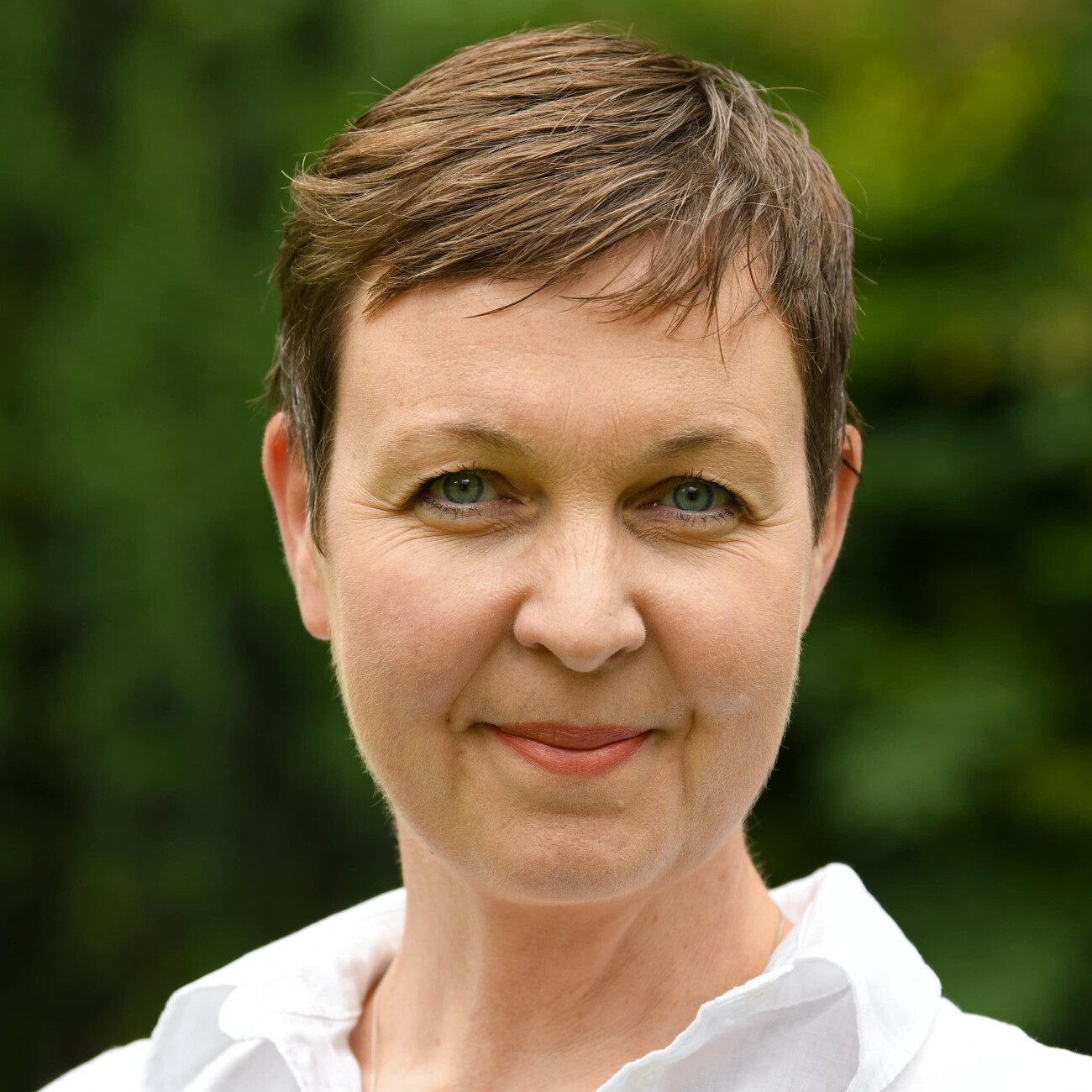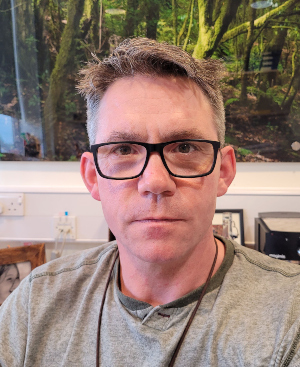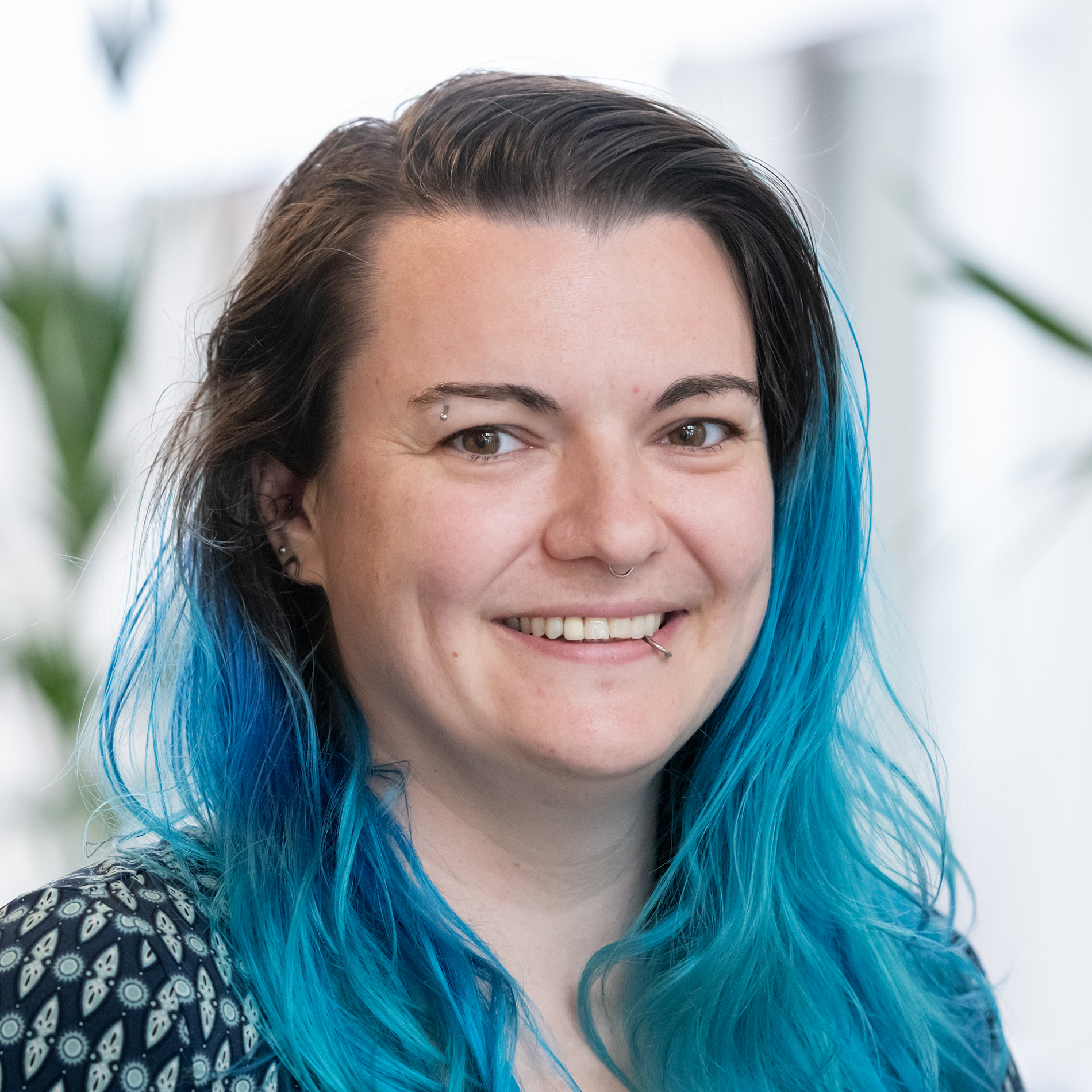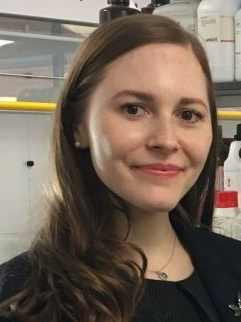Hear from the academics and support staff involved in teaching and supporting our postgraduate programmes across the Department of Immunology and Inflammation.
Meet our staff
- Vaiva Adamonytė - e-Learning Technologist
- Sophie Rutschmann, Director of Education and lead for MSc Immunology
- Jim Crawley - Course Director for BSc Molecular and Translational Haematology
- Alice Denton - iBSc Module 2 Literature Review Lead
- Celeste Miles - Education Manager for Immunology and Inflammation
- Maggie Trela - Senior Teaching Fellow in Immunology
.jpg) Who are you and what is/are your role(s) in the Department?
Who are you and what is/are your role(s) in the Department?
My name is Vaiva and I am an e-Learning Technologist.
Why did you choose a career in education?
I loved my time as a student, so an opportunity to work in Higher Education and enhance student learning experience sounded fantastic to me. As an e-Learning Technologist I get to be creative when developing online learning materials and continue learning about different subjects every day, which makes my job fun and interesting.
What have been the highlights of your career so far?
I have been fortunate to do some travelling during my career which is always a highlight. I took part in an Erasmus+ programme and had a chance to spend a week at the University of Groningen in the Netherlands working with their e-Learning team. On a separate occasion I got to visit Council of Europe in Strasbourg, France to present on an online learning project my team was developing.
I was also very proud to have received a Learning and Teaching Team Prize for the Physiology online course I worked on at the University of Liverpool.
What is your favourite or the most rewarding part of your work in the Department?
Working with programme teams and academics on enhancing their teaching and making learning materials more interactive for students.
What advice would you give to students considering joining one of our courses?
Get involved, make the most of your time but don’t forget to have fun while you’re at it – the time will fly by!
 Who are you and what is/are your role(s) in the Department?
Who are you and what is/are your role(s) in the Department?
I am a Reader in Immunology and have several education related roles in the department: I am the Director for Education and lead the MSc Immunology. I also work for the Faculty of Medicine where I am the Academic Lead for Digital Education.
Why did you choose a career in science?
I pursued a career in science because I am curious, creative, methodical and love learning something new every day! I also love working with rather smart colleagues and students who challenge me in a good way and help me grow!
What have been the highlights of your career so far?
My PhD was definitely the best time in terms of experimental science. Publishing my first paper and obtaining my first grant were very rewarding! More recently, being elected Career and Education Secretary for the British Society of Immunology and becoming a National Teaching Fellow have both been pretty cool.
What is your favourite or more rewarding part of your work in the Department?
Trying new things in the classroom and seeing students become the next generation of immunologists.
What advice would you give yourself as a young person about to start your career? Believe in yourself and go for it … something I actually tell my older self on a regular basis!
If you could go back in time and start again, what advice would you give yourself? Network, network, and network … did I mention network?
What would you be doing if you weren’t in the world of science?
Before I joined Uni, I wanted to work with young adults (which I do now), or be a vet (which is the world of science) … so I’d say a baker (without the getting up super early) or an artist (painting, drawing, acting, …)
What advice would you give to students considering joining one of our courses?
Believe in yourself and go for it! Work hard and create your own opportunities.
 Who are you and what is/are your role(s) in the Department?
Who are you and what is/are your role(s) in the Department?
Jim Crawley, Professor of Haemostasis & Course Director for the Molecular and Translational Haematology BSc course
Why did you choose a career in science?
To find out groovy things that no one had known before
What have been the highlights of your career so far?
Unravelling the structure/function of ADAMTS13, a protease essential for the regulation of blood clotting
What is your favourite or the most rewarding part of your work in the Department?
Instilling excitement in the people in my lab in the understanding science
What advice would you give yourself as a young person about to start your career?
Never stop asking questions
If you could go back in time and start again, what advice would you give yourself?
You will reap what you sow
What would you be doing if you weren’t in the world of science?
On the dole
What advice would you give to students considering joining one of our courses?
Choose something that genuinely excites you. You will invariably apply yourself more, and extract more from, a course that inspires you.
 Who are you and what is/are your role(s) in the Department?
Who are you and what is/are your role(s) in the Department?
Alice Denton, I am a non-clinical lecturer in DoII as well as the lead for the literature review in the iBSc module 2
Why did you choose a career in science?
Honestly, I just kinda stumbled into it because I liked it. I studied biomedical science, did a year-long research programme (similar to an MSc) and really enjoyed the project, so then studied for my PhD. I liked that so did a post doc, and now here I am. Not sure it really works like that anymore!
What have been the highlights of your career so far?
I’ve worked with some really wonderful colleagues over my time, across Australia and the UK, in a few different sub-fields within immunology, learning a lot from each of them, which has been great.
What is your favourite or the most rewarding part of your work in the Department?
The science itself is rewarding – finding answers to questions you pose, however it’s not always the *most* rewarding part. Seeing students grow their scientific skills and become “real” scientists is a wonderful thing
What advice would you give yourself as a young person about to start your career?
Learn from everyone around you and build a supportive network of peers and those just ahead of you in career trajectory. They’ll go through the same career moves as you at the same time, and it’s great to have that network there when you need it.
If you could go back in time and start again, what advice would you give yourself?
Learn some bioinformatics, as painful as it is; this WILL be useful and you’ll need to know about this at some point.
What would you be doing if you weren’t in the world of science?
Ideally throwing pottery (I’m not very good at this, I just like it), but in reality probably working in an office job back in Melbourne.
What advice would you give to students considering joining one of our courses?
Embrace the breadth of immunological learning you’ll do in the course – it’s a unique opportunity to really learn in depth from great scientists!
.jpg) Who are you and what is/are your role(s) in the Department?
Who are you and what is/are your role(s) in the Department?
I’m Celeste, I’m the Education Manager for DoID, DoII, I’ve worked with these two departments for nearly 10 years first as a Dept Administrator then as a Programme Administrator then, Education Co-ordinator, and now as Education Manager. Prior to that I have more than 20 years’ experience in HE admin across a number of universities, including Brunel University, Westminster University and Buckinghamshire New University.
What does being the Education Manager mean to you?
Having worked in the education team and with these two departments for a long while I’m really excited for this opportunity and to step up and take the lead of the team and the direction of education for the departments. I’m also happy that I get to continue to work with a lot of great academics and researchers that the departments have.
Having worked up from programme administrator to Education Manager I think I’m in a really good position to see what goes into the operational side of education and the challenges and opportunities of it.
What aspect of your role are you most excited about?
Education has changed a lot over the years and we’re in exciting times. Areas I’m passionate to get involved in is developing new courses and opportunities. It’s a challenging time in education, both for the sector Medicine and for Imperial; I think we need to think outside the box to expand our offerings, to create courses and learning environments that are attractive for students and applicants.
I’m also really keen to give students a real sense of belonging to the our two departments, so that everyone wants to come study at the Department of Immunology & Inflammation and Infectious Disease!
When you are not working, what are your main passions and hobbies?
Outside of work, I love to be in Nature; hiking, paddle boarding and cold-water swimming, particular doing all that in winter (yes, I get called a bit crazy a lot). I definitely prefer colder climates (evening after living in Australia for 3 years).
And finally – one thing you want people to know about you and your role?
I would love people to know I’m open to chatting about all things education and how staff in the department can get involved with it. If any staff or students in the department have thoughts and views they want to share with me, please do get in touch - my door is open.
 Who are you and what is/are your role(s) in the Department?
Who are you and what is/are your role(s) in the Department?
I am Dr Maggie Trela, I am the Senior Teaching Fellow for MSc Immunology and BSc Medical Biosciences as well as the Departmental Disability Officer and Senior Tutor for the Department of Brain Sciences.
Why did you choose a career in education?
Having worked with several brilliant scientists who were also innovative and people-oriented educators during the early stages of my career, I understood the importance of clear, encouraging and intellectually stimulating knowledge exchange right from the start. This is what prompted me to become an educator myself. It enables me to work with students on developing creative ideas, fresh thinking and enthusiasm for science as they engage in collaborative learning and demystifying scientific concepts.
What have been the highlights of your career so far?
It is an absolute joy to see and be a part of my students' journey in fulfilling their academic and personal aspirations. To be their guide through challenges and hardships while they visibly gain confidence, form professional bonds and become successful young scientists. Also, receiving students' words of gratitude and listening to their reflections on their accomplishments and challenges is very touching every time.
What is your favourite or the most rewarding part of your work in the Department?
Being able to implement innovative ideas and work with like-minded individuals on taking our teaching to the next level in order to ignite that 'spark' in our students.
What advice would you give yourself as a young person about to start your career?
Don't forget the bigger picture every step of the way, take risks and remember that it is the professional and personal relationships that make the real difference in every walk of life.
If you could go back in time and start again, what advice would you give yourself?
Be courageous to do the big things even if they are the little things (these often turn out to be the big things).
What would you be doing if you weren’t in the world of education?
I would most likely be a pianist or a literary translator.
What advice would you give to students considering joining one of our courses?
Investing in yourself is the most profitable investment you will ever make. With that in mind, our courses are designed to not only give you the right professional skills to excel in science, but they will also prepare you for the challenges (and joys!) of professional life and give you a whole range of practical abilities to rely on in your future endeavours.